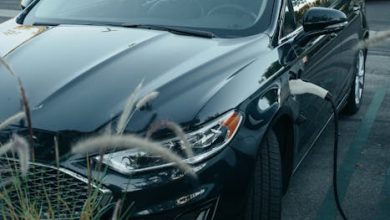
As responsible vehicle owners, we all understand the importance of regular car inspections to ensure our safety on the road. Car inspections help identify and address potential mechanical issues that could lead to accidents or breakdowns. But what about the relationship between car inspections and insurance? Do you need insurance before getting your car inspected? In this comprehensive guide, we will explore this question in detail and provide all the information you need to know about car inspections and insurance requirements.
Why are Car Inspections Necessary?
Car inspections play a crucial role in ensuring road safety for both drivers and pedestrians. They help identify any mechanical, electrical, or structural issues that may compromise the safety of the vehicle. By catching these issues early on, car inspections can prevent accidents caused by faulty brakes, worn tires, or other critical components.
Regular car inspections also contribute to the overall maintenance and longevity of your vehicle. By identifying and addressing minor issues before they escalate, you can avoid costly repairs down the line. Additionally, well-maintained vehicles tend to have better fuel efficiency, perform optimally, and have a higher resale value.
Car Inspections and Insurance Requirements

When it comes to car ownership, having proper insurance coverage is essential. Car insurance provides financial protection in case of an accident, damage to your vehicle, or injury to yourself or others. Insurance requirements vary depending on the state you reside in, but most states mandate some form of auto insurance coverage.
Car insurance requirements typically include liability coverage, which protects against the costs associated with injuring someone or damaging their property in an accident. Additional coverage options, such as collision coverage and comprehensive coverage, may also be required by law or recommended depending on your individual needs.
So, what does car insurance have to do with car inspections? Let’s find out.
Can You Get a Car Inspection Without Insurance?

The requirement for car insurance before getting a car inspection varies depending on the state you are in. While the majority of states do not require proof of insurance for a car inspection, some may require it as part of the registration process. It is important to research and understand the specific requirements in your state.
If you find yourself without insurance but still need to get your car inspected, there may be alternative options available to you. Some states offer special programs or provisions for uninsured drivers, allowing them to still meet the inspection requirements. Additionally, private inspection stations or mechanics may be willing to conduct inspections without checking insurance if the state regulations allow for it.
However, it is important to note that even if insurance is not required for a car inspection, it is highly recommended to have insurance coverage in place. Driving without insurance can have serious legal and financial consequences, and it is essential to protect yourself and others on the road.
Options for Getting a Car Inspection Without Insurance
If you find yourself without insurance and need to get a car inspection, there are a few options available to you. It is important to note that these options may vary depending on your state’s regulations and the specific circumstances.
-
State Programs: Some states offer special programs or provisions for uninsured drivers who need to get their car inspected. These programs may allow for inspections to be conducted without proof of insurance, but they often come with additional requirements or restrictions. Research the specific programs available in your state and determine if you meet the eligibility criteria.
-
Private Inspection Stations: In some cases, private inspection stations or mechanics may be willing to conduct car inspections without checking for insurance coverage. This is subject to state regulations and the policies of individual inspection stations. Reach out to local inspection stations and inquire about their requirements and procedures for uninsured drivers.
-
Temporary Insurance Policies: If you need a car inspection to renew your registration but do not have insurance, some insurance companies may offer temporary or short-term insurance policies specifically for the inspection process. These policies typically provide limited coverage and are valid for a specified period. Contact insurance providers in your area to inquire about the availability of temporary insurance policies.
Remember, it is crucial to obtain proper insurance coverage to protect yourself and others on the road. Driving without insurance can have severe consequences both legally and financially.
Consequences of Driving Without Insurance or Inspection
Driving without insurance or inspection can have serious legal and financial repercussions. It is essential to understand the potential consequences before making the decision to drive without the necessary requirements.
-
Legal Penalties: Driving without insurance or a valid inspection sticker is illegal in many states. If caught, you may face fines, points on your driving record, and potentially even the suspension of your license. The exact penalties vary depending on the state and the specific circumstances of the violation.
-
Financial Liability: In the event of an accident, if you are at fault and do not have insurance coverage, you may be personally responsible for the resulting damages, including property damage, medical expenses, and legal fees. This can quickly become overwhelming and significantly impact your financial well-being.
-
Limited Coverage: Insurance companies may deny coverage for accidents or damages that occur when a vehicle does not meet the required inspection standards. If your car fails inspection and you are involved in an accident, you may be left without the financial protection you would typically have with insurance coverage.
It is crucial to comply with both insurance and inspection requirements to ensure your own safety on the road and avoid severe legal and financial consequences.
Importance of Maintaining Both Insurance and Inspections
Maintaining both insurance coverage and regular car inspections is of utmost importance for responsible vehicle ownership. These requirements are in place to ensure the safety of all drivers on the road and protect against potential accidents, financial liabilities, and legal penalties.
By having proper insurance coverage, you are not only safeguarding your own financial interests but also protecting other drivers and pedestrians in case of an accident. The financial burden resulting from an accident can be overwhelming, and insurance provides the necessary financial protection to mitigate these risks.
Regular car inspections, on the other hand, help identify and address potential issues with your vehicle that could compromise its safety and performance. By addressing these issues promptly, you minimize the risk of accidents caused by mechanical failures or other preventable problems.
In summary, it is essential to maintain both insurance coverage and regular car inspections to ensure the safety of yourself and others on the road, protect against financial liabilities, and comply with legal requirements.
FAQs
Is car inspection mandatory for all vehicles?
Car inspection requirements vary by state. Some states mandate annual inspections for all vehicles, while others may require inspections at certain intervals based on a vehicle’s age or other factors. It is important to check the specific inspection requirements in your state.
Can I renew my car registration without insurance?
In most states, proof of insurance is required to renew your car registration. Insurance coverage is essential to legally operate a vehicle on public roads, and the registration renewal process typically includes verification of insurance.
What happens if I fail a car inspection?
If your car fails a inspection, you will likely be issued a “failed inspection” sticker or report. The specific steps to rectify the issues and pass the inspection will depend on the nature of the failures. You will usually be given a specified time period to make the necessary repairs and return for a reinspection.
Are there any exemptions for car inspections based on insurance status?
Some states may offer exemptions or alternative programs for uninsured drivers or individuals facing financial hardships. These exemptions or programs may have specific eligibility criteria, and it is important to research the regulations in your state.
Can I drive a car with an expired inspection sticker?
Driving a vehicle with an expired inspection sticker is usually illegal. It is important to adhere to the inspection schedule set by your state to ensure your vehicle is safe and compliant with the law.
Will insurance companies provide coverage if my car fails the inspection?
Insurance companies typically provide coverage for accidents or damages that occur regardless of the car’s inspection status. However, if your car fails inspection due to specific mechanical issues, insurance companies may deny coverage for damages caused by those particular issues until they are resolved.
Is it possible to get a temporary insurance policy for the inspection process?
Some insurance companies may offer temporary or short-term insurance policies specifically for the inspection process. These policies provide limited coverage and are valid for a specified period. Contact insurance providers in your area to inquire about the availability of temporary insurance policies.
Do different states have varying requirements for car inspections and insurance?
Yes, car inspection and insurance requirements vary by state. It is important to research and comply with the specific requirements in your state to ensure you are legally and properly insured.
How often should I schedule a car inspection?
The frequency of car inspections depends on the requirements of your state. Some states mandate annual inspections, while others may require inspections at different intervals based on factors such as the age of the vehicle. Research the inspection requirements in your state and schedule inspections accordingly.
Final Take
Car inspections are an essential part of responsible vehicle ownership. They help ensure the safety of your vehicle, identify potential issues early on, and prevent accidents caused by mechanical failures. While insurance requirements can vary by state, it is highly recommended to have proper insurance coverage when operating a vehicle. Insurance provides financial protection in the event of accidents, damage, or injuries, minimizing the financial burden and legal consequences.
To navigate the process of car inspections without insurance, it is important to research the specific requirements and options available in your state. Some states offer special programs or provisions for uninsured drivers, while private inspection stations may also be willing to conduct inspections without proof of insurance, subject to state regulations. However, it is always best to obtain proper insurance coverage to protect yourself and others on the road.
Remember, both car insurance and regular car inspections are essential for safe and responsible driving. Compliance with these requirements not only ensures your own well-being but also contributes to safer roads for everyone. Stay informed, stay insured, and prioritize the safety of yourself and others on the road.



